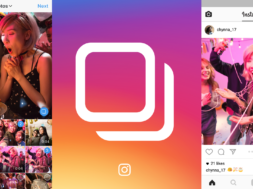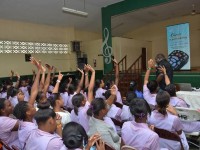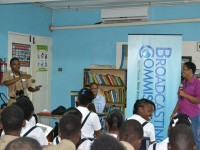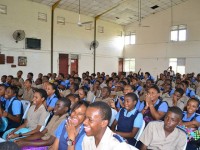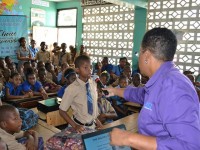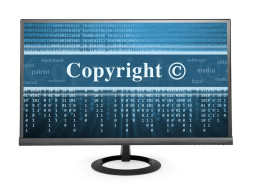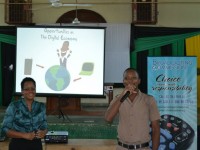
Mention the Broadcasting Commission to any young person and one of the first things they may associate the media regulator with is the pulling of inappropriate tunes off our airwaves. Keeping broadcast radio and television in line with established content standards is, however, but one of the functions of the BCJ. In an effort to facilitate a greater understanding and appreciation of its role and functions, the Commission has engaged in a series of public education initiatives aimed at the youth. In today’s digital age, young people are among the largest consumers of media content and are now creating much of the content consumed by this demographic.
The ‘Schools Outreach’ programme, launched back in September 2011 is a multi-media, interactive presentation delivered to students from grade 4 through to 6 and grade 10 through to 6th form at schools across Jamaica. The one-hour presentation focuses on the role of young people in the digital economy. It explores the opportunities in the digital age and youth as creators, innovators and leaders in this new era of connected devices. Using young, successful media creators such as Reinardo Chung and Mark Zuckerberg (Facebook founder) as examples, students are guided to see their potential as creative ‘uploaders’ rather than as passive viewers or ‘downloaders’ of content.
St. Hilda’s Diocesan High School
The students are reminded that in addition to the opportunities that the digital age provides, there are also challenges that they need to be aware of. A segment of the presentation is therefore devoted to ‘managing your digital self’. Students are invited to think before they post information on social media that could impact their ability to secure employment or even entry in to the university of their choice. The presentation highlights the findings of a 2010 Microsoft-funded survey of 2,500 recruiting professionals and consumers in four major developed nations that found that 75% of U.S. recruiters and human-resource professionals now do online research about candidates, often using information provided by search engines, social-networking sites, photo/video-sharing sites, personal web sites and blogs, and Twitter.
Other means of managing your digital self are proposed, including knowing what programme ratings mean and the implications for younger siblings who teens may be required to supervise, the issue of pay-for-play (or payola) in which money is exchanged for ‘a buss pon di radio’.
The ‘Schools Outreach’ programme has reached nearly 7,000 students in primary and high schools across Jamaica since 2011. The presentations delight the students and are always entertaining and informative. The BCJ’s Facebook page is regularly updated with photo albums from each session. This has also brought a sharp increase in followers engaging with the BCJ’s content and conversations surrounding media and regulation.
(513)
